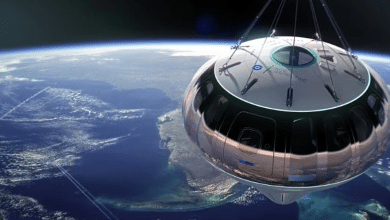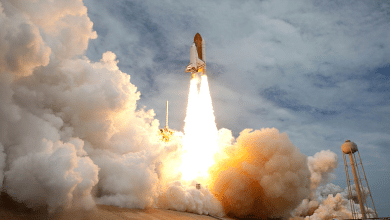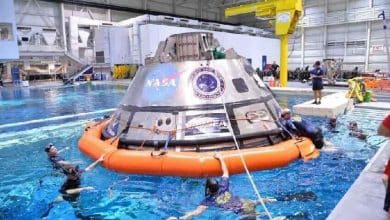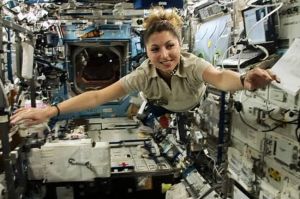The role of AI in space travel

Debates on Artificial Intelligence (AI) have been increasing on social media, radio, and television recently. Some people claim that AI will transform the world for the better while others claim that it is dangerous. But, did you know that this technology has an important role in space tourism? The role of AI in Space Travel is vital when it comes to navigation, safety, and enhancing the overall experience of tourists and astronauts. The technology helps improve mission accuracy, allows autonomous decision-making, optimizes the use of resources, and reduces expenses. AI in Space travel AI in Space travel AI in Space travel AI in Space travel AI in Space travel
How is AI Used in Space Travel?
Artificial intelligence simply refers to the creation of computing systems that can handle tasks that require human intelligence. A subset of AI, known as Machine Learning (ML), has enabled computers to learn from the available data and to improve their performance. Space travel companies have harnessed this ability and they are now working to improve their services.
Recently, space tourism companies started using AI to design and plan flights, thanks to simulations and data gathered from previous flights. They are further using it to optimize flight parameters such as trajectory, launch date, budget, and payload.
The technology has enabled space tourism companies to build rockets that can navigate autonomously, adapt to various environments, and complete complex operations. For example, Falcon 9 developed by SpaceX relies on AI to dock at the International Space Station (ISS). Besides, the system records the atmospheric conditions before and during launch and when re-entering the earth’s atmosphere.
What’s more, AI has been proven to enhance communications between spacecraft and Earth. The companies are therefore using it to optimize the communication frequency, bandwidth, modulation, and power. Furthermore, it enhances the reliability and security of communication links by correcting interferences and errors.AI in Space travel AI in Space travel AI in Spa
How Does AI Help in Space Travel?
Artificial intelligence is helping commercial space travel companies solve problems faster. Space tourism is among the most exciting and challenging endeavors of man. It demands a combination of scientific knowledge, human courage, and technological advancements. However, most of the risks are associated with sending rockets and humans to unknown regions. Here is how AI is helping solve the problems.
– Improving the Safety of Space Crews and Travelers
The safety of space travelers is important. Artificial intelligence is playing a vital role in checking the well-being of travelers. Space travel companies have adopted AI-driven systems to monitor the conditions of their spacecraft, detect anomalies, and even make adjustments to ensure the safety of travelers.
For instance, the companies use advanced AI algorithms to detect any potential technical problems and suggest the best corrective actions therefore reducing the chances of accidents. Crew Dragon spacecraft developed by SpaceX features AI systems that allow it to dock with the International Space Station (ISS) without the need for human intervention. The ability has ensured the safety of space tourists and astronauts.
– Personalized Experiences
With AI-powered personalization, space travel companies can now customize the experience of their travelers depending on their behaviors, preferences, and needs.
AI technology analyzes travelers’ data, including their personal preferences and any other relevant information to create a customized experience. It can help adjust cabin conditions, provide personalized activities in space, and offer curated cuisine. This can increase customer satisfaction and engagement therefore making the travel experience enjoyable and memorable.
– Navigation and Guidance
Space has many complexities that demand precision and accuracy. This is another reason why space travel companies have adopted AI technology. AI-powered rocket navigation systems rely on data from satellites and onboard sensors to plan routes, calculate trajectories, and make the necessary adjustments. That means spacecraft can reach their destinations faster and with precision.
– Space Weather Forecasting
Space weather forecasting is also vital for successful space tourism. Some elements like cosmic rays and solar flares, pose a big challenge to space tourism. They are known to disrupt satellite communications and endanger the lives of astronauts.
Space travel companies are using AI algorithms to gather and examine space weather data. This helps them provide accurate forecasts and prepare for conditions that may affect the performance of rockets. AI systems also alert astronauts to take the necessary preventive measures.
– Supporting the Health of Astronauts and Travelers
AI-augmented wearable health technology has found its way into the space travel industry. Therefore, these tools are likely to be among the most dominant noninvasive add-ons to spaceflights. For example, wrist-worn actigraphs have helped scientists collect rest-activity data from astronauts.
Health experts recommend monitoring muscle strength, bone density, energy expenditure, and cardiac output to identify travelers or crewmembers who are likely to lose their bone strength. A wearable device designed to measure these parameters and analyze the data can help identify bone health issues earlier.
Scientists are also working to create things like electronic noses that can sense harmful compounds and electronic ears to detect abnormal lung sounds. The combination of machine learning and motion sensors has further helped identify fatigue.
How is AI Used in Rocket?
One of the roles of AI in space travel is to enhance the safety and performance of spacecraft propulsion systems. With the help of real-time data analysis, and intelligent decision making, rockets can now optimize their performance and respond to changing conditions.
One of the space tourism companies that have been using AI to improve their spacecraft is SpaceX. The company has been using AI to monitor the collection and analysis of data from its rocket’s telemetry systems and sensors. This has allowed them to make better decisions and control the speed and trajectory of their rockets precisely.
Furthermore, SpaceX has been using AI to automate the landing procedure of their rockets. AI allows them to control the operation of the landing gear and engines while ensuring that the rockets are in the right position before landing. AI in Space travel AI in Space travel AI in Space travel AI in Space travel AI in Space travel
Conclusion
AI has enhanced various space travel aspects. It has enabled the construction of precise navigation systems and helped improve the efficiency and safety of spacecraft. It has helped analyze the data gathered from space therefore offering important insights for the improvement of rocket designs and operation. Moreover, it has allowed customization of services depending on the needs and preferences of space travelers. Space tourists now expect personalized entertainment and dining experiences.





